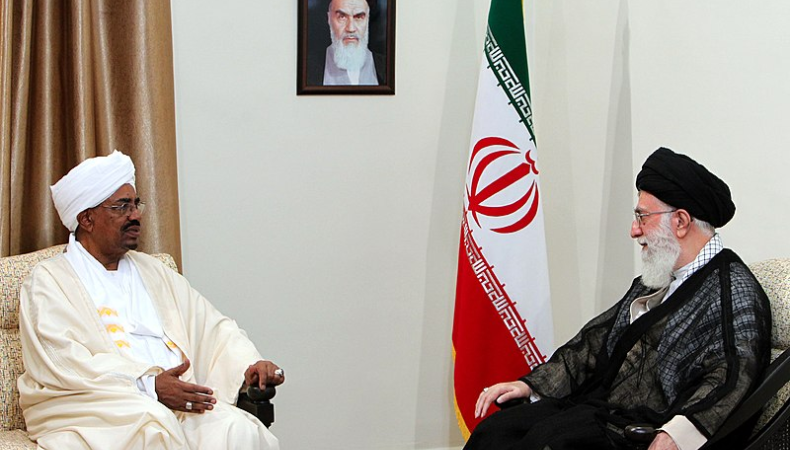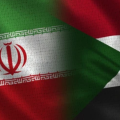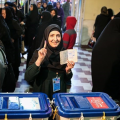Iran’s Expanding Influence in Sudan: Technical Training and Strategic Implications

A big step forward in the bilateral relations between Sudan and Iran has been taken with the arrival of five technical experts. A growing military cooperation was highlighted by the Sudanese Army and the General Intelligence Service’s reception of the group. The proficiency with drones, jamming devices, and communication interception methods of the Iranian experts suggests a growth of military cooperation.
Arousa training
The Iranian specialists will train on cutting edge military equipment, including how to operate Iranian drones, in the isolated village of Arousa. Sudan is trying to improve its military capabilities, and this action indicates a change in the balance of power in the region. Modern combat operations depend on the training covering cutting-edge military technology like electronic warfare and communication interception methods. With this cooperation in Arousa, Sudanese military forces should be able to operate more effectively and maybe gain a technological advantage over their opponents in the region.
Such intense training programmes work well in Arousa because of its remote location, which keeps prying eyes and other security risks at bay. The selection of this town highlights the strategic planning underlying this collaboration, guaranteeing a safe and regulated setting for the training. The Iranian experts will give Sudanese soldiers practical instruction ranging from simple drone operations to intricate mission planning and execution.
The Expanding Imprint of Iran
Iran has been progressively gaining sway over Sudan in recent months. Tehran’s strategic interest in the area is highlighted by the training of Sudanese soldiers and the supply of military equipment, such the Mohajer-6 drones. With their dual purpose of warfare and observation, these drones are a major improvement to Sudan’s aerial capabilities. Iran wants to project power and protect its geopolitical interests in Africa, and part of that goal is to expand its footprint. Iran wants to counter the influence of other countries and fortify its ties with African countries that are ideally located along important land and marine routes by gaining a foothold in Sudan.
Iran’s approach calls for both the long-term presence in Sudan and the transfer of military technologies. Setting up training facilities, offering ongoing technical assistance, and maybe co-developing military technology catered to the particular requirements of the Sudanese military are all part of this. A part of this all-inclusive military assistance package are the Mohajer-6 drones, which are renowned for their adaptability and efficacy in a range of combat situations. Iran is making it quite evident that it intends to use military cooperation as a major instrument to increase its influence in the area by getting more and more involved in Sudan.
Strategic Implications
Deep strategic ramifications are attached to the military collaboration between Sudan and Iran. The regional security environment might change if Sudan purchases Iranian drones and other cutting-edge military hardware. The improved capacities offered by these technologies might give Sudan more confidence in its interactions with other countries, which might tip the scales in favour of it. Moreover, Sudan might take a more aggressive posture in regional conflicts with the help of Iran, using its increased military might to sway the result. This strategic alliance also reflects Iran’s larger objective of increasing its power in Africa by leveraging military and technical support to forge coalitions and balance its regional rivals.
The strategic consequences go beyond quick improvements in the armed forces. In other domains, such intelligence sharing, joint military exercises, and coordinated efforts in regional crises, Iran’s backing for Sudan may result in greater cooperation. This collaboration might also affect Sudan’s foreign policy, maybe bringing it closer to Iran’s regional goals. The cooperation of the two countries may be a model for other African states looking to improve their armed forces, hence increasing Iran’s influence on the continent.
Probable Escalation
The possibility of the already high tensions in the area rising has been brought up by the Iranian assistance Sudan’s military might. The instruction in Iranian drones and other military technologies may seriously tip the scales in favour of one side and make the current situation worse. Aware of Sudan’s military aspirations already, neighbouring nations could react by stepping up their own military spending or looking for alliances to offset Sudan’s increased power. This armaments race may worsen already tense conditions and raise the possibility of hostilities, therefore destabilising the already unstable region.
The present rivalries and disputes in the area make the possibility of escalation very worrisome. The deployment of cutting-edge military equipment by Sudan might result in more aggressive posture, which would incite retaliation from nearby nations. Growing military prowess of the parties involved raises the possibility of error and unexpected outcomes. International and regional organisations could have to step in to arbitrate and stop a full-scale escalation of hostilities.
International Reactions
The happenings in Sudan are being attentively observed by the world community. Specially Western countries have voiced worries about Sudan and Iran’s growing military relations. These countries worry that the increasing sway Iran has on Sudan will exacerbate regional unrest and jeopardise their strategic interests in Africa. Iranian influence may be countered diplomatically by possible penalties or by bolstering support for other countries. Countries having strong links to Sudan, meantime, can try to calm and mediate the situation in order to stop tensions from becoming even higher.
The reaction of the world community will be very important in determining how Sudan and Iran will work militarily going forward. Western nations might take diplomatic steps or use sanctions to deter more cooperation. Conversely, nations having a stake in the area would back Sudan’s neighbors more, creating a complicated network of alliances and counter-allies. If this military collaboration results in more war or stability will depend critically on the world reaction.
Keep On Reading
A Tight Balance in Conclusion
With Iran involved, the developments in Sudan offer a complicated picture of power struggles and alliances. As the world community closely monitors, the ramifications of this alliance may have a profound impact on the stability and security of the region. A major change in regional geopolitics, the increasing military collaboration between Sudan and Iran has the potential to upset power balances and spark fresh hostilities. It will take cautious diplomatic efforts and strategic planning to manage this fine balance and prevent the area from devolving into more turmoil. The way that the international community reacts to these events will determine how Sudan’s military aspirations and Iran’s influence in Africa develop in the future.










